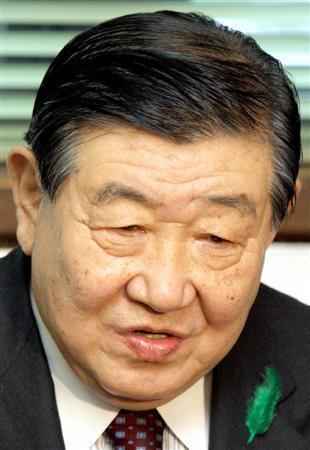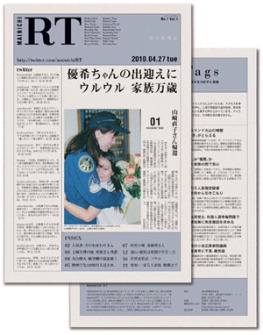I’m going to break down this post from the WSJ’s Japan blog piece by piece.
In the U.S., the current president, vice-president, first lady and secretary of state are all lawyers.
Sure–the Democratic Party is mostly run (and also mostly financed) by lawyers. But the Bush administration had few lawyers in its ranks; the composition of the cabinet is really determined more by who is choosing its members.
More than 40% of the members of Congress hold law degrees, in fact. Finally, they have some like-minded counterparts at the top of the Japanese government.
Prime Minister Naoto Kan is the first ”benrishi” lawyer to be prime minister in Japan since World War II, “benrishi” being licensed to handle patents — such as for his Mahjong machine — and other intellectual property matters. His top aide, Chief Cabinet Secretary Yoshito Sengoku, is a “bengoshi”, or general lawyer.
First of all, benrishi is a very narrow qualification, somewhat like being a patent agent in the US except that it also involves advisory functions and covers a range of intellectual property. Kan doesn’t even have a law degree, and the benrishi exam only tests a few specific IP laws (see the official spec here).
Secondly, Kan is not the first postwar lawyer prime minister. Tetsu Katayama, prime minister from 1947 to 1948, was a full-fledged bengoshi and is even pictured on Wikipedia wearing his attorney pin.
But most importantly, this analysis betrays a basic misunderstanding of how legal services differ between the US and Japan. Harvard professor Mark Ramseyer attacks the under-lawyered Japan myth in his excellent book Japanese Law: An Economic Approach. In one early section of the book, he points out that there are many other qualifications to provide legal services to third parties, and that a huge amount of Japan’s legal work is performed by people with no Japanese law license whatsoever, including Justice Ministry bureaucrats, corporate legal staff, and foreign-qualified lawyers like me.
Ramseyer also points out that the number of law school graduates in the US (many of whom also end up not practicing law independently) is not that different on a per-capita basis from the number of law faculty graduates in Japan. This brings us back to the WSJ:
Altogether, the Kan “irregular militia” cabinet has four lawyers, the same number as the final Hatoyama cabinet it replaced, and the new secretary general of the ruling Democratic Party of Japan, Yukio Edano, is also a lawyer. That’s quite a sea change from the last administration in the Liberal Democrat Party’s nearly 50-year rule: Taro Aso had no lawyers in his cabinet at all.
This is all technically true, but not very relevant. Again, most legally-trained people in Japan end up not becoming attorneys. This includes several members of Aso’s cabinet, including Kaoru Yosano, Yoichi Masuzoe and Shigeru Ishiba, who all graduated from law faculties of top universities.
Besides, the LDP has plenty of licensed lawyers on hand, even if Aso didn’t utilize any of them. His successor as leader of the LDP, Sadakazu Tanigaki, is a bengoshi. So is one of the most popular LDP-backed politicians at the moment, Osaka governor Toru Hashimoto. Many lesser LDP legislators sport attorney pins, too.
Mr. Kan’s Justice Minister Keiko Chiba, a holdover from the previous cabinet, practiced law for years — a less common background for Japan’s top law official than one might expect. While in the U.S. it would be considered irregular to appoint an attorney general who lacked experience as an attorney, many Japanese justice ministers have come from other fields, including engineering and nursing.
This comparison overlooks a very fundamental difference between the US Cabinet, which can consist of whomever the president can push through the Senate, and the Japanese Cabinet, the majority of which has to be comprised of legislators. Pretty much all Japanese Cabinet members, including the Justice Minister, come from a single background: the Diet. They get to the Diet in different ways, but they never walk straight from a drawing board or operating room to head up the Justice Ministry.
It also overlooks a very fundamental difference in the two posts. The Japanese Justice Minister has practically no advisory role, whereas the US Attorney General is expected to give legal advice to the President and the Cabinet. The Justice Minister has few formal duties, and they only personally carry out one of those duties: administration of the death penalty. Other duties, like stamping foreigners’ entry permits and representing the state in court, get delegated in practice to much lower-ranking bureaucrats, and the minister’s theoretical oversight of the prosecutor corps is rarely exercised.
Despite all these differences, full-fledged lawyers still get to be Justice Minister on a fairly regular basis. Chiba is the fourth Justice Minister in this decade (out of eleven) to have a bengoshi qualification. The previous three were, of course, all LDP people (Okiharu Yasuoka, Masahiko Komura and Seiken Sugiura).
For decades Japan had the fewest lawyers per capita of virtually any developed nation, but that is changing. The country now has nearly 29,000 lawyers, a figure that has roughly doubled in 15 years. A law-school system introduced in 2006 has opened the doors wider to the profession.
Now we’re talking about bengoshi, not benrishi. Kan’s qualification has pretty much nothing to do with law school.
Law school also has little to do with the slowly-rising number of lawyers. Entry to the bengoshi profession is strictly a function of the bar exam pass rate, which was extremely low (3% or so) under the old bar exam which required no graduate school, and is still only one-third or so for people who have finished three years of law school under the new licensing system. The exam is full of tricky questions which effectively require the exam taker to memorize all the central statutes of the Japanese legal system as well as the key precedents and scholarly arguments surrounding each one. Other law licenses like benrishi have similarly onerous exams, though no others force people to sit in school for three additional years just to have a one-out-of-three shot at the license.
In all of these cases, the doors could be opened wider by making the exams more practical, but the exams are designed to create a high barrier to entry. As a result, the people who pass these exams tend to be the type of people who could not be bothered with going into a corporate or government job straight out of university, and they tend to stay in private practice rather than joining large institutions–which, as we know, hold all the political power in Japan.
In contrast, US bar exams are designed to mint larger numbers of lawyers, with a passage rate between 80% and 95% in most states. The passage rate is lower in some states where people can take the exam without going to law school, such as California (where apprenticeship study and unaccredited law schools are both options) and New York (where foreign lawyers and law graduates can sit the exam with a certain minimal level of US legal training). They test a narrower range of law and are generally meant to check a person’s reasoning skills rather than knowledge of the chapter and verse of the law.
And with more than 4,000 women lawyers (up from a mere 42 a half-century ago), Japan may be closer to having a pair of lawyers someday as its first couple, following in the footsteps of Bill and Hillary Clinton and Barack and Michelle Obama.
Yuck. One lawyer is more than enough.



